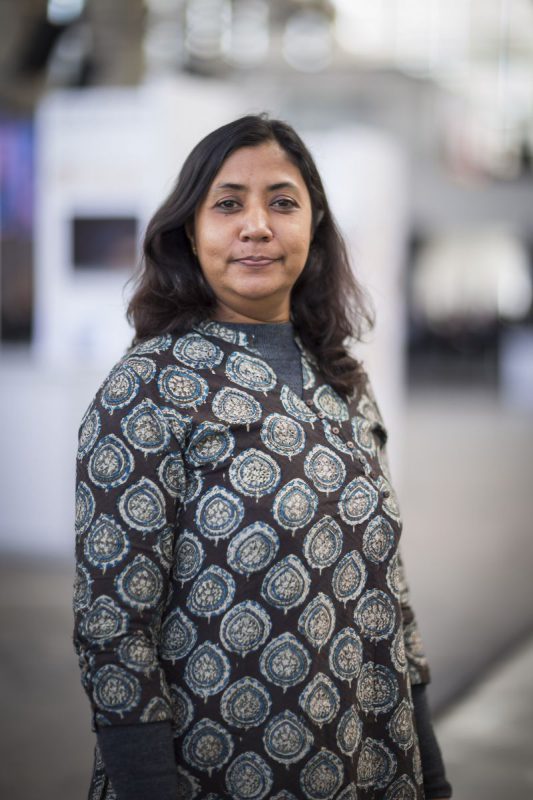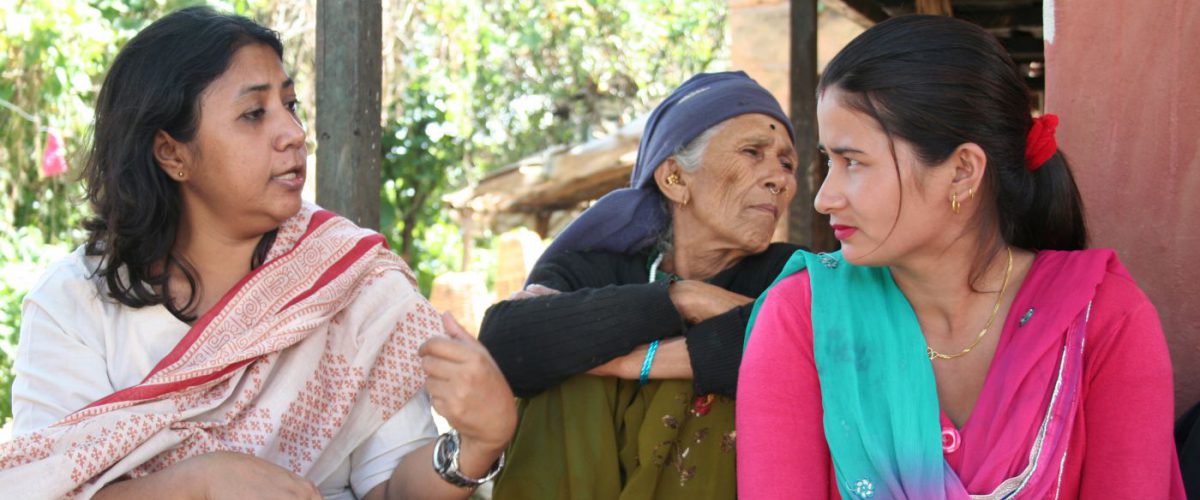At the upcoming Asia Clean Energy Forum (ACEF), ENERGIA will play a more active role than ever before. More on this, and on some central issues that will be discussed at ACEF, in a conversation with Soma Dutta, the Program Coordinator of Women Economic Empowerment Program.
Why and in what way is ENERGIA taking part in ACEF?
ENERGIA has engaged in several of these forums, and that is because ACEF is among the most important and the most well-attended gathering of its kind in the clean energy sector. Last year more than 1,400 participants from 60 countries took part in the forum, and this year there are likely to be more. If you are working in the clean energy field, as we are, then ACEF is the place to get your messages out to highly relevant public. This year’s forum is especially relevant for us. Asian Development Bank, one of the organizers, has shown a lot of interest in and commitment to gender, especially in the electricity sector, and ENERGIA will play a more central role than ever before. We codesigned the thematic track on Energy Access, and we integrated gender in all sessions that fall under that track. Apart from the main sessions, ENERGIA is co-organizing a Deep Dive workshop SEforALLGlobal Tracking Framework: Asia-Pacific Results and Energy Access/Gender Metrics. The fact that we were able to introduce the gender perspective to such an extent is in and of itself proof that gender is finally, if slowly, being recognized as an essential component of energy policies, programs and investments.
Gender is finally being recognized as an essential component of energy policies, programs and investments
Why does a gender perspective matter for expanding access to clean energy?
At the most basic level, women are the main providers of household energy and are disproportionately affected by energy shortages, yet they tend to be overlooked as key stakeholders of energy initiatives. That is despite the fact that the majority of world’s poor people are women, so they really cannot continue to be left behind in efforts to reduce poverty. The starting point of the gender, energy, and poverty linkage is that men and women differ in their energy needs and levels of access. To ensure equitable development outcomes, those differences must be accounted for when developing energy interventions. When women gain access to quality energy services, this has multiple poverty reduction impacts: on health, income generation, and family. Another critically important fact, and one that we have seen confirmed through ENERGIA sponsored interventions, is that women can play a central role in expanding energy access at the last mile, which is, in reality, the greatest challenge we are faced with when aiming for sustainable energy for all.
When women gain access to quality energy services, this has multiple poverty reduction impacts
The Energy Access track, which ENERGIA will be co-chairing, comprises a range of interesting topics. One session will be dedicated to government-led efforts in terms of national energy access policies and plans. What role do governments have to play in extending clean energy access?

National governments can and should play an immense role. Firstly, they have to show their commitment and recognition that these issues are important, and that they are to be treated as basic rights issues, along with the right to life, to water and other basic rights. Secondly, like in other sectors, the governments have a huge role to play in creating an enabling environment in the energy sector, in a way that combines the strengths of big and small actors, and makes space for everyone. The small actors are particularly important when we talk about expanding access to the last mile where transactions costs of are too high for the big actors. We need tax administration and regulations supportive of smaller, informal sector firms, financing instruments suited to women and small entrepreneurs. Next, governments have to support their declarations of intent and recognition of the issues with funding commitments. Especially when we are talking about the last mile interventions, the proactive role of governments in financing is central. Finally, governments have a big role to play in quality control. As prices of renewables are decreasing, that has a range of positive consequences, but it also brings along some quality issues that governments are well placed to counter. We can think of certification schemes as one example, but there are other ways in which governments can play a role in this sense.
Governments have to support their declarations of intent with funding commitments
Urban energy issues are another subject that will be discussed at ACEF. Which are the key challenges in that area?
Asia is urbanizing at an unprecedented pace and faster than any other region. It is already home to half of global urban population, and this raises a plethora of difficult issues, which will only grow over time. These include air pollution, congestion, CO2 emission, deprivation in water and basic sanitation, and growing vulnerability to natural disasters.The development of infrastructure is not keeping pace with urbanization, and large portions of population lack access to energy and are highly dependent on traditional fuels. One of the many negative consequences is indoor pollution. In 2012, 4.3 million people, mostly women and children, died prematurely from illnesses attributable to indoor air pollution caused by biomass use. Eight in 10 of these deaths occurred in Asia Pacific region. Clearly, this is tragic for the affected families but it also represents a big burden on societies and economies. On top of everything, these issues directly affect people who relocate from rural to urban areas and, in their new environment, do not have the support system they could previously rely on. These are just a few of the challenges that the session on urban energy will likely touch upon.
Large portions of urban population lack access to energy and are highly dependent on traditional fuels
A novelty at ACEF, one that is particularly in line with ENERGIA’s approach, is bringing in voices from the grassroots. Why is that important and who will represent those voices?
It is important to hear out those voices because they come from where the largest energy challenge lies right now, and they are demonstrating practical solutions for reaching largely poor and hard-to-reach communities with energy services. These people are fighting tough battles to bring energy access to areas where large-scale infrastructure is unlikely to ever extend. In doing so, they are not only doing a great service by expanding energy access. They are also serving their communities, countries and economies by enhancing local employment generation, helping governments achieve development targets, increasing income at local level, to name but a few aspects. The moment these people are actively involved in events such as AECF, the tone of discussion changes. It becomes more practically oriented and responsive to actual needs at the local level, and that is at least as important as higher-level discussions focusing on global actions. These grassroots perspectives will be voiced by four exceptional women who are all successful clean energy entrepreneurs and have been selected by a special jury. We are especially proud that one of the presenters is Kalphana Rai who has benefitted from ENERGIA sponsored Women Economic Empowerment Program implemented by our partner Center for Rural Technology Nepal.
It is important to hear out the voices from the grassrots because they come from where the largest energy challenge lies right now











Follow us on: